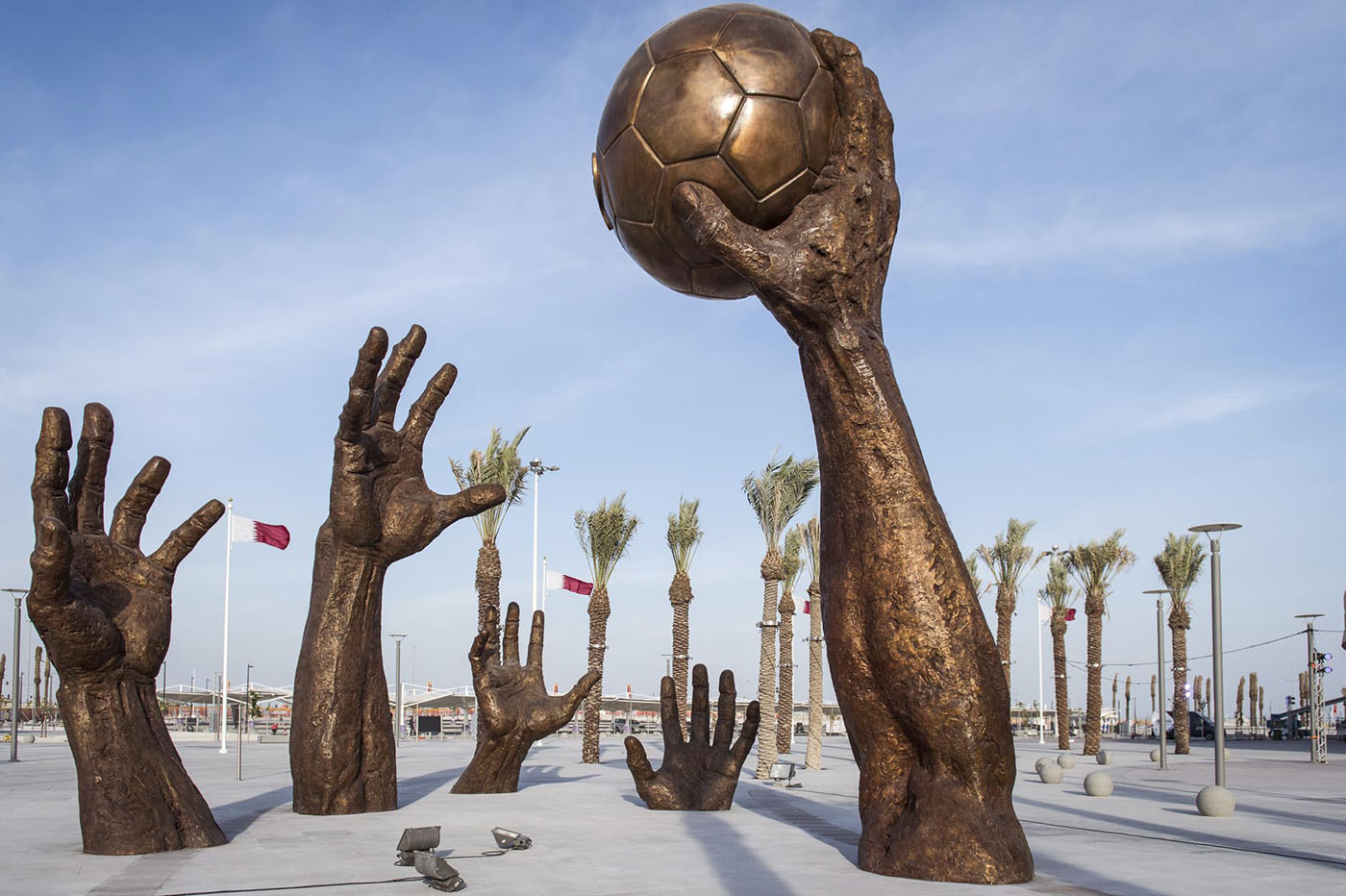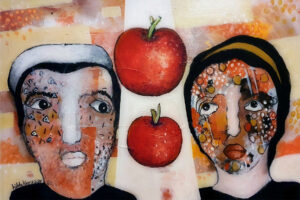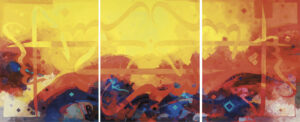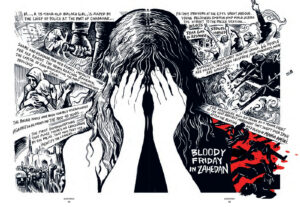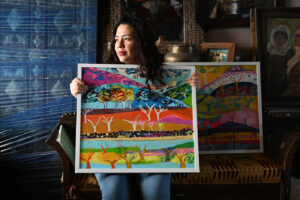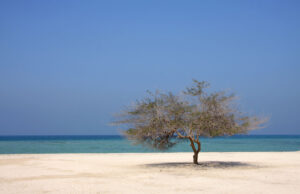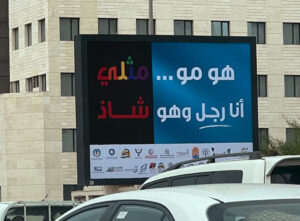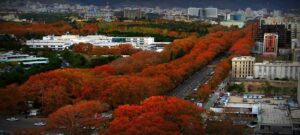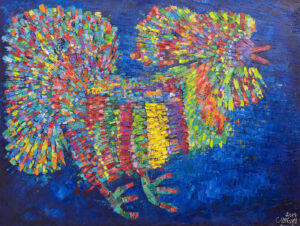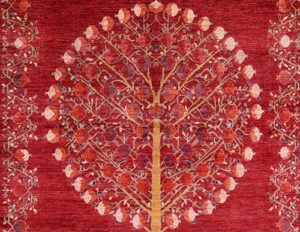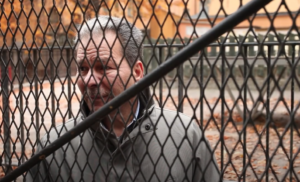Pride activists in the States and Europe mean well, but too often they fail to dig deeper to understand the cultural sensitivities of their Arab/SWANA compeers, which sometimes leads to further scrutiny and oppression in the Gulf.
Christina Paschyn
When Beyoncé took to the stage for an exclusive, invitation-only concert at the Atlantis The Royal hotel in Dubai in January, Western news outlets were quick to point out the singer’s alleged hypocrisy.
Articles and editorials in media outlets as varied as BBC News, the Daily Mail, and Jezebel questioned and criticized the megastar for accepting the hotel’s $24 million gig to perform in the United Arab Emirates, a country that criminalizes gay relationships and non-conforming gender expression. Fans and LGBTQ activists quoted in the articles described Beyoncé’s choice as an act of “greed” and “betrayal” — made more devastating by the fact that her latest album, Renaissance, was heavily influenced by queer dance music artists.
But a glaring omission in many of these screeds was the opinion of those with presumably the most at stake: queer Khaleejis themselves — Arab nationals of the Gulf countries.
To that end, I spoke with Rabeea, a dual Emirati American citizen in their 30s who identifies as gender non-binary and queer and uses they/them pronouns. Rabeea is no stranger to the repression that LGBTQ Emiratis can face. After having lived in the UAE for more than 10 years, they recently moved back to the US after Emirati authorities discovered they had contributed an essay to an anthology that recounted their experiences as a queer national.
“They gave me three options: Delete the chapter, edit the chapter, or do 15 years in jail,” Rabeea explained. “[The digital edition] is temporarily edited just to calm them down, but once I’ve been in the States for a couple of months, I’m going to revert it back to its original state.”
Despite this distressing experience, Rabeea, who also works in the entertainment industry as a stand-up comedian, disagreed with Western pundits and activists that Beyoncé should never have set foot in Dubai. Her performance was problematic, they said, but not in the way Western media framed it.
“The fact that it was closed off to the public, and it wasn’t announced or anything — that just rubs me the wrong way,” Rabeea said, adding that Beyoncé, who did not perform any songs from her recent album, “squandered” an opportunity to show solidarity with LGBTQ people living in the Gulf. Unlike Lada Gaga, who performed in Dubai in 2014.
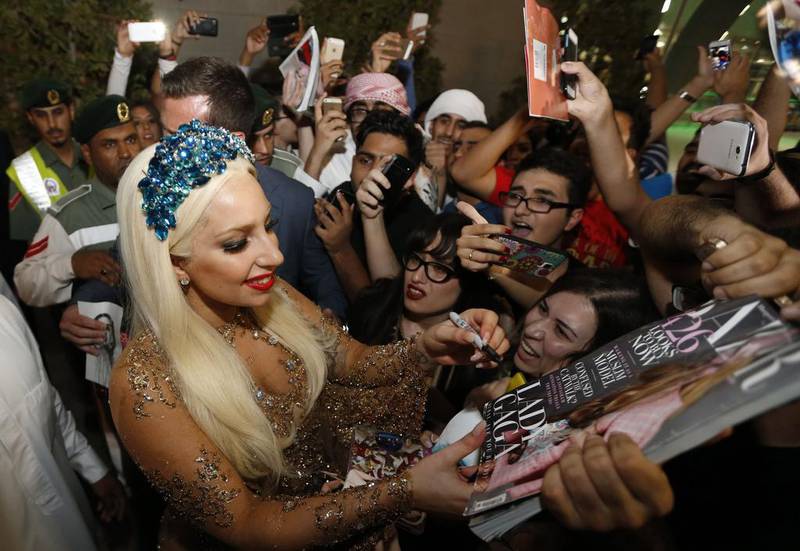
“[Lady Gaga] didn’t censor herself at all,” they said. “She sang ‘Born This Way’ — full lyrics and everything, no censorship whatsoever. I don’t know if she’s allowed in the country again after that little stunt, but to me, this is the right way to do it.”
Jassim,* a 30-something gay Qatari man, on the other hand, described the Western outrage as a “joke.”
“They [the West] are minimizing and trivializing our lives,” he said. “The picture they portray is that my liberation or oppression is contingent upon performers like Beyoncé saying yes or no in our countries. It’s all about Western approval or disapproval. It’s almost like they preside over who gets to have a say in what is right or wrong, broadly.”
The Western press’ coverage of the concert is no different from their “incompetent” reporting of the 2022 World Cup in Qatar, which Jassim said he witnessed up close during the tournament. Over the past few years, he had furtively built a small network of international media contacts and human rights activists to connect to queer Khaleejis. As the World Cup approached, he anticipated that the information and anonymous interviews that he and his friends were giving would help to engender empathy for them among mainstream Qatari society, which he described as largely oblivious to the struggles of queer nationals. These include painful ostracization and estrangement from family, thoughts of suicide, and oppression by security authorities.
But rather than the balanced reports on the country’s cultural and religious “psychology” that he had expected, Jassim said he was horrified to see “reductive” news coverage that often demonized Qatar and prioritized the voices of Western LGBTQ pundits and activists over Qatar’s own.
Among the examples Jassim and seven other queer Khaleejis whom I interviewed (using encrypted communication) cited were over-the-top headlines slamming the tournament as a “World Cup of human rights horrors” – or implying that the country might have killed sports journalist Grant Wahl, and “racist” write-ups that ridiculed the Qatari emir for placing a traditional bisht around the shoulders of Argentinean footballer Lionel Messi after his team won the Cup — a symbol of great honor in Qatari culture. Many also remarked on Western media’s preoccupation with whether gay tourists would be able to kiss or hold hands, which they said demonstrated a lack of research into the local cultural context. Most of these stories did not include the perspectives of queer Qataris.
The pride flag is a “blind import” that, whether justifiably or not, has become equated with Western imperialism and colonialism in the Middle East.
“They [Western media] were saying stupid things related to public display of affection. In our culture, it is so normal to see two straight men holding hands. It is forbidden in the West, and it’s considered to be gay there, but it’s normal for us. It is to actually symbolize solidarity, empathy, affirmation,” explained Tamim,* a gay Qatari man in his late 30s, who added that in Qatar, kissing in public is considered inappropriate regardless of sexual orientation.
“But who would know this from the West?” he then asked. “They would not know it unless they come here and spend time in Qatar, and they understand how our culture is constructed, what the priorities are, and how societies work. They need to know all of this before they ask the questions because they’re not asking the right questions.”
Jassim said he was particularly frustrated that Western media focused so much on Qatar’s attempts to stop spectators from carrying rainbow flags or wearing rainbow paraphernalia inside stadiums while valorizing Westerners who did so anyway. He explained that the pride flag is a “blind import” that, whether justifiably or not, has become equated with Western imperialism and colonialism in the Middle East. Other Qatari and Emirati interviewees confirmed this association, adding, however, that they personally do not view it as such. Rabeea said they find the pride flag “beautiful,” but agreed that the symbol has not been “helpful” in the Middle East.
“People who try to come into the country and use that symbology — those symbols are not helping the situation. The pride flag is a great catch-all explanation of the cause in a Western sense, so to speak. But I don’t think we have something like that in our countries to uniquely describe our situation,” Rabeea said, adding that they hoped a Khaleeji artist would one day create a pride symbol that would be more authentic for the region. “Because as soon as the people that have power here — as soon as they sniff any little bit of Westernism or something like that, it just triggers their authoritarian instincts. Like, ‘Oh, the West is trying to repress my people’ instincts.”
Moza,* a queer Qatari woman in her 20s, explained that local society misunderstands the intentions behind Western pride symbols. “It’s not seen as an LGBTQ community flag where they basically try to advocate for that. It’s not seen as peaceful as that,” she said, adding that her father and many other parents in Qatar approved of the government’s efforts to remove rainbow-colored toys from stores in recent years.
“[My dad] is like, ‘They’re trying to brainwash our kids,’ but he didn’t say it was to become gay. It’s basically [for the West] to get to them, for them to trust the Western media — to trust people that are like that,” Moza explained. “The way they see it, it’s not like, ‘Oh, we’re afraid that our kids are going to become gay.’ It’s more like, ‘If they normalize being gay, they can normalize a lot of other things because they’re smart. They can get to us. They’ve done this before, and then they can do it again.’”
This is not to say that local society would be accepting of queer Qataris if the symbology and accoutrements associated with the pride movement changed. Moza clarified that although her father does not hate or would harm gay people, he does think homosexuality is wrong. As a result, she has not come out to her father or most of her family, who she said would lose respect for her if they were to find out, or possibly pressure her into marriage. When she meets with other queer friends, she does so secretly, without her family’s knowledge.
Other LGBTQ Qataris, however, have faced harrowing persecution at the hands of the state security forces. A report by Human Rights Watch published in October 2022 documented multiple cases of severe physical brutality, intimidation, and sexual harassment committed by police against queer Qataris; transgender women also reported being forced to agree to conversion therapy as a condition for their release from detention.
Among the Qataris I spoke with, none said they had been arrested by security officials for their gender expression or sexuality, but many knew friends who had. They also described the perils of living in Qatar as a queer national, with several describing the fear of being found out and shunned by family or surveilled and imprisoned by the government as psychological and emotional torture.
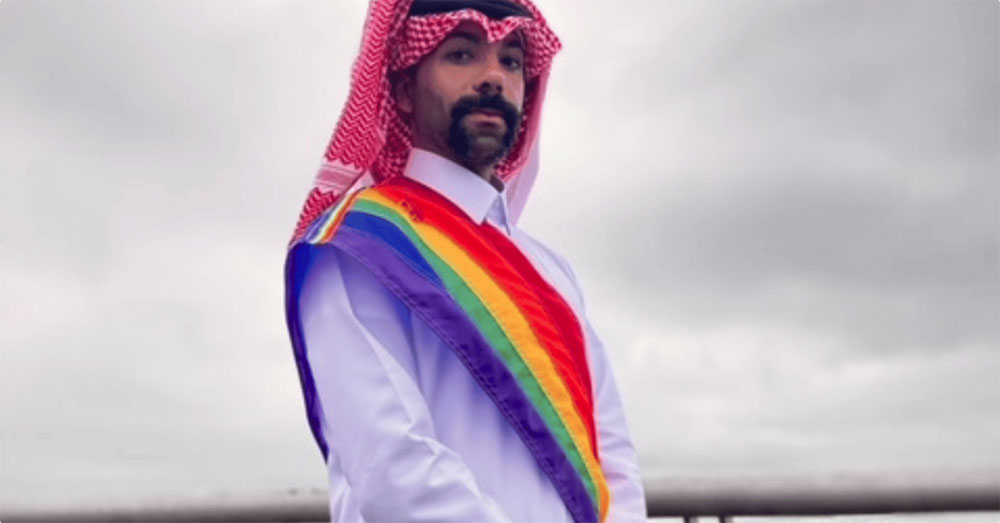
Yet despite the hardships they face, all said they had been against Western calls for a boycott of the tournament. Most had, in fact, attended matches.
Moza in particular shrugged off Western media reports about the dangers spectators faced attending the Cup if they dared to carry rainbow paraphernalia publicly. For her and her queer friends, the large crowds and fan zones that the World Cup brought enabled them to live freely and openly for the first time.
“We were wearing a lot of rainbow things. It was very obvious. I’m telling you, my friends, my trans friends, were just being themselves. Nobody did anything!” she said. “There were a lot of safe spaces for us — even the fan zones. We really appreciate the fact that we could walk around during the World Cup and meet people of our own. Now that the World Cup is over, it’s pretty sad for us because it was really amazing.”
Moza’s positive experiences during the tournament undercut Western LGBTQ activists’ assertions that boycotting entertainment and sporting events in the Gulf is the only ethical choice. She said she is optimistic about what the future will bring for queer Qataris.
“Hosting the World Cup means there are a lot of things that are going to change in the country,” she explained. “It was to open people’s eyes that there is a country called Qatar. It is next to Dubai, but it’s not Dubai. There’s a country that exists, and we built all these stadiums and malls and all of these amazing places. Not because it’s just for the World Cup. It’s because we want people to come to visit our country, to live in it, maybe work in it. That’s why I supported the World Cup because I know, basically, the government is pressured to act a certain way. They cannot do the [repressive] things that they used to.”
She described Western boycott demands as simultaneously “funny,” “dumb,” and “hurtful.” “We’ve been preparing for [the World Cup] for 12 years. You’re going to do [a boycott] right before? I know people that planned this trip for the World Cup two years ago. They’re not going to drop it,” she said, adding that she thought Western media used the country’s LGBTQ community and lack of rights as an excuse to bash Qatar. “For me, Europe and the Western media were never fond of the Arab world. I’m not surprised. They’ve always been against it, so it’s just another day for me as a Qatari to hear these things.”
In our interview, Qatari human rights activist Dr. Nas Mohamed, 36, also described boycott calls as ultimately unhelpful. “Boycotting is cutting resources away from us. We need to ride this platform to get resources. If people boycott and say, ‘this is not my problem,’ then we’re left on our own again.”
Mohamed, who identifies as non-binary and gay and uses he/him pronouns, is an asylee working as a medical doctor in San Francisco. He rose to prominence before the tournament as the first gay Qatari to come out publicly in the media, and said he experienced firsthand how Western outlets often get it wrong, even Orientalizing his identity.
“One of the first pieces that caught me off guard that I was unhappy with was one by the Metro newspaper in London. It was just so not reflective, I think, of my opinions and views. It was very exaggerated,” he said. “They […]showed a photo with me in my thobe [a traditional men’s robe in the Gulf] and they cited the photo of the thobe as [essentially] Nas being oppressed in Qatar. And it was me serving coffee, and I was like, really? Then another photo with me and my tattoos saying, Nas living his life, and now he’s free. I’m like, that is really not what’s going on in these photos.”
Mohamed said he never expressed his concerns to the reporter after the piece was published on June 7, 2022, because he was busy with other interview requests and activism work. But the article prompted him to march in the San Francisco Pride parade that year wearing his thobe “to show that my identity is not a problem.”
That issue of Metro was guest edited by Australian-British LGBTQ rights activist Peter Tatchell, who, in an email to me, said he had commissioned articles for the issue but did not have editorial oversight of them.
Mohamed and Jassim said they once corresponded and collaborated with Tatchell, but have since stopped. In 2020, Jassim wrote an essay for the Peter Tatchell Foundation in which he advocated that people boycott the Cup. But he has since said that in the intervening years, he changed his mind after he “decolonized” his thinking and realized that he was holding his country to a different standard. “But I’m not holding my breath to see if America gets the same scrutiny for the heinous crimes it has committed, seeing as they’re going to host the next [World Cup],” he stated.
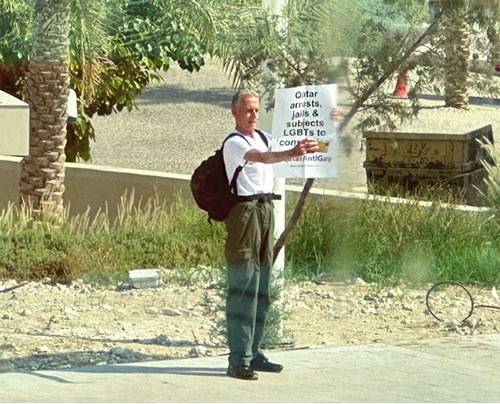
The reason they cut ties with Tatchell, Jassim and Mohamed said, is because he staged a one-man protest in Doha a month before the World Cup began, despite being advised by multiple LGBTQ Qataris and Khaleejis not to. In a private digital group, members warned Tatchell that such a protest would be ineffective and could actually harm their community, as verified by screenshots shown to this writer by Jassim.
In our email correspondence, Tatchell described queer Qataris’ criticisms of him as “sectarian attacks.” In my view, he also made several questionable and exaggerated claims defending his protest. For example, despite human rights abuses in Qatar already being substantially covered by international media months before his protest, Tatchell wrote: “[…] It put human rights abuses in Qatar on the map and set the tone for much of the media coverage for weeks afterwards. Before my protest, there was some human rights coverage. After it, the coverage was non-stop and many times greater.”
He also said that he has been a part of two secret “encrypted” groups of Qatari activists, including the aforementioned LGBTQ digital group. He acknowledged that “some” members of the LGBTQ group disagreed with his protest, but that “others have since expressed support” for it. Of the second group of activists, which Tatchell said he has been part of for several years, he wrote: “This Qatari human rights defenders group asked me to do something in the run-up to the World Cup in order to shine a light on the repressive regime in Doha. They said the most effective thing would be a public protest that would get lots of media reportage […]The Qatari human rights defenders group thanked me and said it was the single most effective action ever to highlight abuses by the regime. Their words, not mine.”
When I asked him if he could put me in touch with someone from that group to corroborate his account, Tatchell said its members do “not speak to journalists after a reporter’s carelessness got one of them arrested.”
Mohamed and Jassim expressed skepticism that this other group exists. “It is really tough for us not to know of other activists. We are a very small community,” Mohamed said. They also rejected Tatchell’s claims of the impact of his protest, with Mohamed calling it “delusional.”
“The whole thing was just a show,” Mohamed said, adding that the protest diverted media attention from the Oct. 2022 Human Rights Watch report that he had contributed to, which had come out the day before. “He took attention away from LGBTQ Qataris,” Mohamed reiterated.
When asked to comment, Tatchell dismissed their skepticism, writing that the digital messaging group had been focused “on LGBT+ rights,” whereas: “I am working with the Qatari human rights defenders group on the whole range of human rights issues: LGBT+, women, migrant workers, ethnic and religious minorities, humanists/atheists and democratic reformers […] The secret underground Qatari human rights defenders group (not their real name) that I have worked with has major security protocols […] Plus, I understand that they all use pseudonyms. So, of course, Dr. Nas does not know of them. Does he seriously think they would let slip to their existence and activities? They would get torture and life imprisonment if discovered.”
He also claimed that he had been contacted by the human rights defenders group after he had worked on Qatari human rights issues for several years and “had shown my commitment and effectiveness,” adding that “I had to complete a number of tasks to prove that I could be trusted.”
Regarding the Human Rights Watch report, he wrote that the report was “well covered by the media before my protest. I mentioned it in my many interviews and media briefings at the time of my protest and for many weeks after. Media analysts say it received much more coverage after my protest. So the claim that I detracted from it is just another false sectarian attack” (emphasis his).
In our email correspondence, Tatchell also wrote that in the weeks before his protest, he had offered members of the LGBTQ messaging group opportunities to be interviewed anonymously by journalists, but that no one in the group came forward. He made a similar claim in a profile interview with the Guardian published on October 31, 2022, which, like other Western media coverage of gay rights in the Gulf, did not include the replies of queer Qataris or Khaleejis. In that interview, Tatchell added: “But no one in the online group that is now criticizing me was willing or able to give interviews, not even anonymously. That’s another reason why I did the protest.”
This is not true. As confirmed by Jassim and as I have verified, Qatari and Khaleeji members were already giving interviews to foreign media, and international journalists were part of the messaging group. Members did not take Tatchell up on his offer because they didn’t need or want to, Jassim said.
The LGBTQ digital group is now defunct. Mohamed said that following Tatchell’s protest, his contacts in Qatar reported government surveillance of their private digital conversations and that a number of them had been called in by security forces for questioning.
According to Tatchell, “there is not a shred of evidence that my protest has put LGBT+ Qataris at risk.” He explained that when he entered Qatar, he took a new phone that did not have any Qatari contacts on it or the app associated with the digital group. Tatchell said it was more likely that the group had been hacked by other means or that some members were already being monitored by the government.
But Jassim, who subsequently wrote an anonymous op-ed for The Independent warning other Westerners against staging “self-serving” demonstrations in his country, said that even if Tatchell’s protest is not the root cause of the increased government surveillance, it still generated real fear among the Qatari queer community.
This was confirmed by Saif,* a Qatari in his early 30s who identifies as gender fluid and uses he/him pronouns. He said the unexpected protest led many to abandon the digital group, resulting in queer Qataris losing an important social and mental health lifeline.
“We did not expect [Tatchell’s protest] to happen, and we were actually against this happening,” Saif said. “We were a community in that group potentially exposed by someone else. For our safety now, we had just to disappear. We had somewhere safe to talk to each other and feel like we belonged somewhere, and now it’s gone because of this.”
In the above Guardian interview, Tatchell rejected accusations that he is acting like a white savior who fails to respect grassroots campaigns or the local cultural context. He countered that many of his critics, particularly liberals in the West, are engaging in cultural relativism, stating: “It’s as if non-white people don’t merit the same solidarity.”
But what the queer Qataris interviewed from the digital group make clear is that Western activists’ actions aren’t actually solidarity if they don’t bother to listen to the people they’re purporting to help.
For Aryam Marafi, 22, a Kuwaiti asylee living in the United Kingdom who identifies as queer, asexual, and aromantic, and who has also written for the Peter Tatchell Foundation, the incident underscores the necessity of Western activists and media to center the needs and desires of local stakeholders who have the most to lose. This will vary depending on the country in the Gulf, she added.
“When I spoke to some of my Kuwaiti friends,” Aryam continued, “we said if [Tatchell’s protest] had happened in Kuwait, we would have been happy to see that because Kuwait is slightly more liberal socially than Qatar (not politically). However, when I spoke to actual Qataris, they were worried that it would lead to a crackdown and greater attacks on local queer people. After his protest, Peter Tatchell just gets to go home and be safe. Other people locally are not safe. Now they’re more vulnerable to scrutiny by the government, which I completely understand.”
Since the World Cup ended, queer Khaleeji activists remain focused on helping their communities, as well as correcting “biased” Western media narratives about their identities and homes countries. “[Queer people] are not fully safe in the U.S. either. Right now, there is a wave of anti-LGBT legislation happening everywhere,” Mohamed emphasized.
“There was big media noise during the World Cup, which I was very aware [of] during that moment, that there were just people with agendas,” he added. “But luckily, in that moment, I got to build my own platform and now get to have my own voice.”
Mohamed is particularly focused on expanding his Alwan Foundation, an organization he founded to offer support to LGBTQ Qataris and other Khaleejis. He said it recently raised enough funds to help cover the legal fees of two queer Qataris seeking asylum in Europe.
And on June 25th, he was one of the grand marshals leading the San Francisco Pride Parade. This time he wore what he described as a specially designed “queer thobe,” with the words ‘Love is not a crime’ written in Arabic on the bottom of it.
“It’s really going to give me a platform and a moment to speak directly about our cause, what I’m doing, and why it is important,” Mohamed said. “It’s about Middle Eastern visibility.”
*Indicates use of a pseudonym



